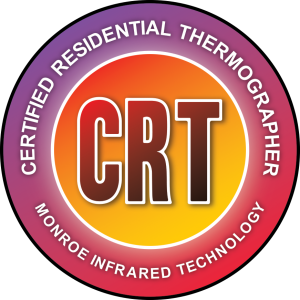Protecting Your Families Health
PA Certified ID#
Steve Maurer (#2619)
NJ Certified ID#
Steve Maurer (MET 12345)
I use Continous Radon Monitors. They need to be set for 2 days per PA-DEP requirements but the results can be analyzed immediately. No more waiting the day or two for lab results.
Maurer Inspections can offer you Radon Measurement for your home as a separate service or as part of a complete home inspection at any time. Take a few minutes and understand a little more about the specifics of Radon and how it impacts your families health.
Direct from the U.S. (EPA) Environmental Protection Agency:
Radon is a cancer-causing natural radioactive gas that you can’t see, smell or taste. Its presence in your home can pose a danger to your family’s health. Radon is the leading cause of lung cancer among non-smokers. Radon is the second leading cause of lung cancer in America and claims more than 20,000 lives annually. The EPA encourages people to test and fix their homes for radon. This is a good time to focus on testing and on fixing homes with a radon level of 4 pCi/L or more. Heed the Surgeon General’s warning. Take action now to reduce your family’s risk of lung cancer from radon!
You cannot see, smell, or taste radon. But it still may be a problem in your home. When you breathe air containing radon, you increase your risk of getting lung cancer. It is a radioactive gas. It comes from the natural breakdown of uranium in soil, rock and water and gets into the air you breathe. Radon typically moves up through the ground to the air above and into your home through cracks and other holes in the foundation. Radon also can enter your home through well water. Your home can trap radon inside.
Any home can have a radon problem. This means new and old homes, well-sealed and drafty homes and homes with or without basements. In fact, you and your family are most likely to get your greatest radiation exposure at home, where you spend most of your time.
Radon Agreement Form (pdf)
Please Note: This agreement must be read, understood and signed prior to starting a measurement service.
If You Are Selling a Home
The PA Department of Environmental Protection (DEP) recommends that you test your home before putting it on the market. Save positive test results or pursue remediation if radon levels are found at or above 4 picocuries per liter (pCi/L). Either way, paying attention to radon levels could be a positive selling point.
If You Are Buying a Home
DEP recommends that you know what the indoor radon level is in any home you consider buying. Ask the seller for their radon test results. If the home has a radon-reduction system, ask the seller for any information they have about the system. If you don’t have any test results within two years or you may live in a lower level than was tested, you should have the house tested in the “Lowest Livable Area”.
You cannot predict radon levels based on state, local and neighborhood radon measurements. Do not rely on radon test results taken in other homes in the neighborhood to estimate the radon level in your home. Homes which are next to each other can have different indoor radon levels.
Testing is the only way to find out what your home’s radon level is.
Further reading
EPA Home Buyers & Sellers Guide to Radon
EPA Consumers Guide to Radon Reduction



